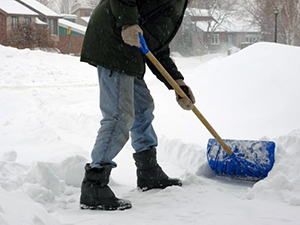The health and future of every child and adolescent worldwide is under immediate threat from ecological degradation, climate change and exploitative marketing practices that push fast food, sugary drinks, alcohol and tobacco at children, said a new report on Wednesday.
No single country is adequately protecting children's health, their environment and their futures, according to the report by a commission of over 40 child and adolescent health experts from around the world.
The commission, convened by the World Health Organization (WHO), the United Nations children's agency, Unicef, and medical journal the Lancet, found that while the poorest countries need to do more to support their children's ability to live healthy lives, excessive carbon emissions --disproportionately from wealthier countries -- threaten the future of all children.
"Despite improvements in child and adolescent health over the past 20 years, progress has stalled, and is set to reverse," said former Prime Minister of New Zealand and Co-Chair of the Commission, Helen Clark.
"It has been estimated that around 250 million children under five years old in low- and middle-income countries are at risk of not reaching their developmental potential, based on proxy measures of stunting and poverty. But of even greater concern, every child worldwide now faces existential threats from climate change and commercial pressures," Clark said.
The report, titled "A Future for the World's Children?", includes a new global index of 180 countries, comparing performance on child flourishing and sustainability, with a proxy for greenhouse gas emissions, and equity, or income gaps.
India ranked 131 among the 180 countries in the index.
The index shows that children in Norway, the Republic of Korea, and the Netherlands have the best chance at survival and well-being, while children in the Central African Republic, Chad, Somalia, Niger and Mali face the worst odds.
However, when the authors took per capita CO2 emissions into account, the top countries trail behind: Norway ranked 156, the Republic of Korea 166, and the Netherlands 160.
Each of the three emits 210 per cent more CO2 per capita than their 2030 target.
The US, Australia, and Saudi Arabia are among the ten worst emitters.
If global warming exceeds 4 degree Celsius by the year 2100 in line with current projections, this would lead to devastating health consequences for children, due to rising ocean levels, heatwaves, proliferation of diseases like malaria and dengue, and malnutrition, said the report.
The only countries on track to beat CO2 emission per capita targets by 2030, while also performing fairly (within the top 70) on child flourishing measures are: Albania, Armenia, Grenada, Jordan, Moldova, Sri Lanka, Tunisia, Uruguay and Vietnam.
The report also revealed the distinct threat posed to children from harmful marketing. Evidence suggests that children in some countries see as many as 30,000 advertisements on television alone in a single year, while youth exposure to vaping (e-cigarettes) advertisements increased by more than 250 per cent in the US over two years, reaching more than 24 million young people.
Children's exposure to commercial marketing of junk food and sugary beverages is associated with purchase of unhealthy foods and overweight and obesity, linking predatory marketing to the alarming rise in childhood obesity, said the report.
The number of obese children and adolescents increased from 11 million in 1975 to 124 million in 2016 - an 11-fold increase, with dire individual and societal costs.







Comments
Add new comment